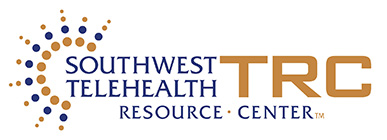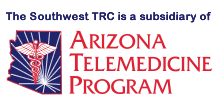
The remarkable lifelong health benefits of breastfeeding for both a breastfeeding parent and their child are well-known, and include a reduced risk of obesity, diabetes, breast cancer, early childhood illnesses and autoimmune diseases, to name just a few. Most new parents intend to breastfeed their child, and 83.2% of newborns in the US start out receiving some breastmilk initially, but according to the CDC’s 2022 Breastfeeding Report Card, only 24.9% of infants in the United States are exclusively breastfed at 6 months of age as recommended by the American Academy of Pediatrics.
This shortfall has some major implications, not just for personal or public health, but for the economy and environment as well. The global economic impact of suboptimal breastfeeding rates was estimated to be $341 Billion USD annually in a 2019 report, and a 2022 study found that 4 months of formula feeding has a 35-72% greater environmental impact compared to 4 month of exclusively breastfeeding.
Given the significant impact to public health, the economy, and the environment, why do breastfeeding rates continue to be so low, and what can be done to ensure that all families receive equitable access to breastfeeding support?
The Surgeon General’s Call to Action to Support Breastfeeding cites inequitable access to skilled lactation care as a key barrier to optimal infant feeding. International Board-Certified Lactation Consultants (IBCLCs) are considered to be the top experts in the clinical management of breastfeeding and human lactation, yet are one of the most underrepresented allied health professions in the mainstream medical model. For example, with just 396 IBCLCs across the state, Arizona has only 60% of the IBCLCs needed to ensure that all birthing families have access to expert-level skilled lactation care. With 76,947 births per year, the state would need an additional 266 IBCLCs to be able to provide adequate lactation care to all families. IBCLCs are internationally certified to care for families located anywhere across the globe, but access is sparse in many areas, especially rural regions where breastfeeding parents are considered lucky if they have the opportunity to be seen by an IBCLC just once at their birthing hospital. Furthermore, the current model is largely problem-focused, and does not provide equal support to breastfeeding families throughout the continuum of their feeding journey.
What is needed is a paradigm shift in the way lactation support is offered, with telemedicine technology at the foundation. It is not only possible, but often preferable for families to receive lactation care via a video call in the comfort of their own home. A full range of breastfeeding support services can be provided via telemedicine, but perhaps most importantly, many common breastfeeding problems can be avoided altogether when this care takes a preventative approach.
With major accessibility barriers lifted due to telemedicine, “well breastfeeding care,” much like preventative prenatal or well-baby care, can become the standard. In this model, new parents-to-be receive comprehensive prenatal breastfeeding education and preparation, and are followed by an IBCLC breastfeeding expert throughout their entire infant feeding journey. Families have the opportunity to meet virtually with an IBCLC 7 days a week at a time that works for them— Not only when they are experiencing breastfeeding challenges, but also for all major milestones along the way, such as settling in at home with their newborn, going back to work, starting solids, and weaning.
There are many other barriers to optimal breastfeeding in the mainstream medical model that today’s leaders in telehealth lactation are already breaking down, including financial constraints due to complicated billing processes for lactation support services and a lack of continuity of care and communication between lactation providers and primary care teams. Lactation telemedicine providers such as Nest Collaborative partner with health insurance payors, hospital systems, and primary care providers to provide both cost savings and critical continuity of care to patients. Simplified billing processes translate to comprehensive virtual lactation support being readily available to families with no out of pocket costs, while simultaneously ensuring health insurance payor compliance with Affordable Care Act coverage mandates.
Families across the Southwest, the US, and the world deserve the support needed to reach their breastfeeding goals. Investment in breastfeeding support has proven returns in the health and wellbeing of two generations, the environment, the economy, and public health. Through telemedicine, it’s not only possible to expand access to this critical support, but to change the way lactation care is approached entirely to optimize breastfeeding rates and protect the health of our communities.


